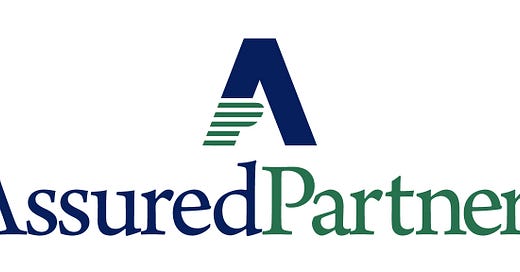Exposing the Rebate Racket: A Wake-Up Call for Employer Fiduciaries
A federal whistleblower lawsuit has pulled back the curtain on one of the worst-kept secrets in healthcare: hidden profits from pharmacy benefit managers (PBMs) are quietly draining employer-sponsored health plans—and employees are paying the price.
Filed by Alan Wiederhold, a former VP at Evolution Healthcare, the suit accuses Evolution and its parent company, AssuredPartners, of concealing $27 million in drug rebate revenue from employer clients. That money, intended to offset prescription costs, was allegedly rerouted into company profits and executive bonuses.
Let that sink in: 61% of Evolution Healthcare’s 2024 revenue allegedly came from PBM rebates that were never disclosed to their clients.
This isn’t just about one firm. It’s about a deeply flawed system that thrives on conflicts of interest and financial opacity. It’s also a wake-up call for employers—especially those sponsoring self-funded health plans—to start taking their fiduciary duties seriously under the Consolidated Appropriations Act (CAA).
Why the CAA Matters More Than Ever
Passed in late 2020, the CAA introduced sweeping reforms around health plan transparency, broker compensation, and fiduciary accountability. But enforcement has lagged, and many employers still don’t realize that they are now personally liable for understanding how every dollar is spent in their health plan.
That includes:
How brokers and consultants are compensated
How PBM contracts are structured
Where rebates, discounts, and fees are going—and whether they’re being passed through
The Wiederhold lawsuit is a giant red flag: If you don’t know where your drug rebates are, you’re probably not getting them.
A Conflict of Interest Hiding in Plain Sight
Imagine hiring a CPA who gets paid by the IRS. That would never fly. But in the benefits world, it’s disturbingly common for brokers to receive compensation from the very vendors they’re supposed to negotiate with on your behalf—often without disclosure.
These payments come in many forms: overrides, commissions, data fees, and, yes, retained drug rebates. This creates an incentive structure where your broker profits more when your costs go up.
It’s a textbook breach of fiduciary duty—and potentially illegal under ERISA.
Employers: The System Wasn’t Built for You
Most employers didn’t ask for this system. They inherited it.
Insurers were created by hospitals to manage billing and access.
Brokers were created by insurers to sell products—not to serve as independent advisors.
But that legacy structure no longer serves your organization or your people. Today, brokers and consultants have a legal duty to disclose compensation, avoid conflicts of interest, and act in the best interest of the plan sponsor and its beneficiaries. That’s you and your employees.
What This Lawsuit Really Reveals
The AssuredPartners case isn’t an isolated event. It’s a symptom of a healthcare system where financial incentives are grossly misaligned:
Brokers earning bonuses based on rising drug spend
Vendors rewarding consultants for steering business their way
Employers kept in the dark about revenue streams tied directly to their plan’s cost structure
This isn’t just inefficient. It’s exploitative—and it’s putting your plan, and your people, at risk.
What Can Employers Do?
Demand Full Transparency
Require complete fee disclosures from all consultants, brokers, and vendors.
Ask specifically about any PBM revenue—rebates, spreads, data sales, and administrative fees.
Own Your Data
Insist on access to your plan’s claims, contract terms, and rebate agreements.
Use that data to benchmark costs, audit vendors, and hold everyone accountable.
Work with Independent Advisors
Choose consultants who refuse vendor compensation.
Prioritize fiduciary-aligned partners who work solely for you.
Final Word: The CAA Gives You the Tools—Now Use Them
The CAA wasn’t just another piece of healthcare legislation. It was a signal from Washington: employers must step up as fiduciaries. This includes vetting your vendors, understanding your consultant's incentives, and ensuring your plan funds are used appropriately.
If you think hidden rebate profits are someone else’s problem—think again.
Now is the time to ask tough questions, audit your plan, and ensure that every dollar is working for your employees—not padding someone else’s bonus.





